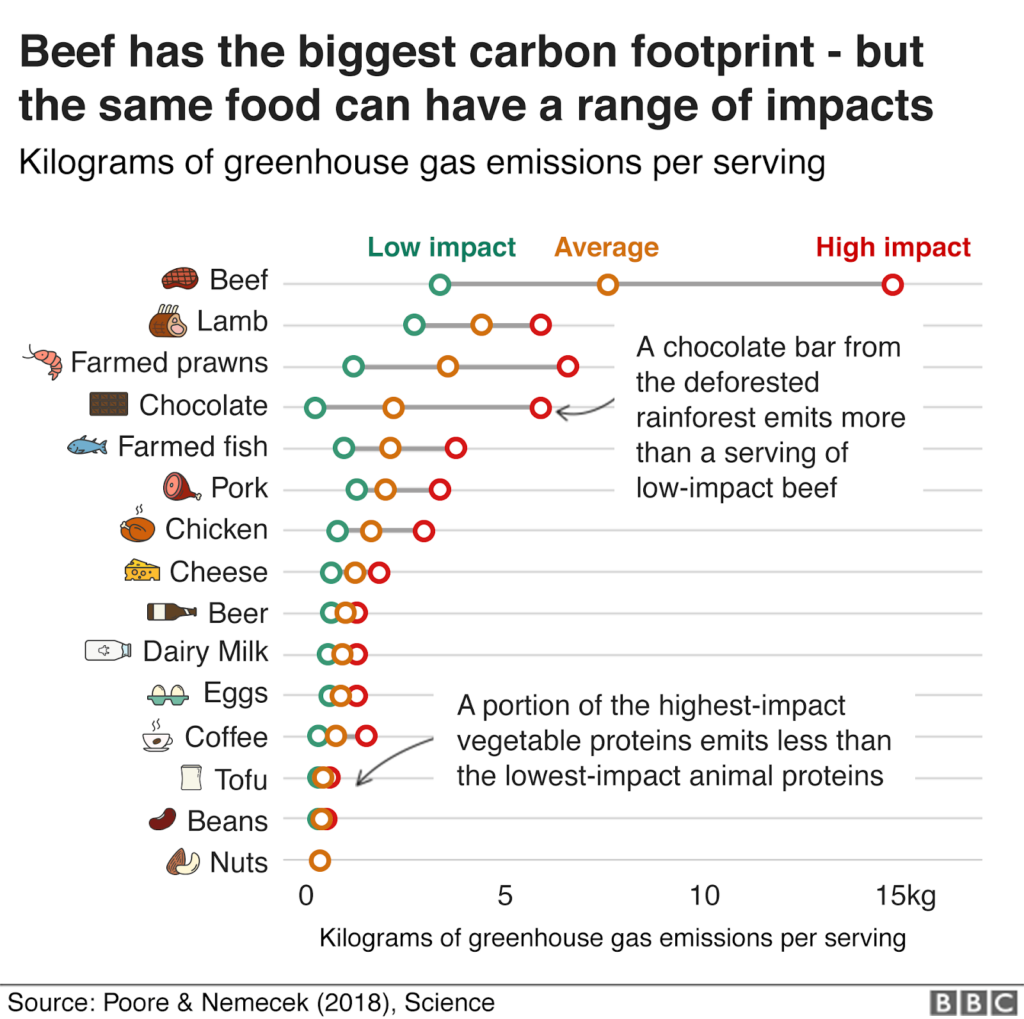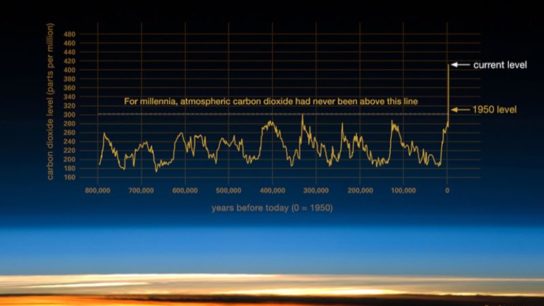The environmental impact of your beef may not always be simple, but it is always higher than plant-based alternatives.
—

A study published in the journal Science in 2018 by Poore and Nemecek demonstrated that even the lowest impact animal products have greater environmental impacts than plant-based substitutes. However, even within products, there is huge variation in the environmental impacts depending on the production process. This demonstrates that it really does matter not only what you eat, but how it was produced.
A quarter of greenhouse gas emissions come from food production (1), and with a predicted global population of nearly 10 billion people by 2050 (2), minimising the environmental impact of food production is becoming even more important. It has also been shown that:
- Food production is also responsible for a third of global terrestrial acidification (lowering the pH of soil) and three quarters of eutrophication (chemical pollution of water) (1)
- 43% of the world’s ice- and desert-free land is taken up by agriculture (1)
Poore and Nemecek showed that reducing the environmental impact of food is complicated, for example, the environmental impact of the production of just one product can vary as much as 50-fold. This, however, creates opportunities for mitigation, such as reduced land-use, processing, and packaging.
Furthermore, this study found that many of the highest impact plant proteins still emit less greenhouse gases per serving than the lowest impact animal proteins. They identified five reasons for why animal proteins have a greater environmental impact than plant proteins:
- The production, processing, and transportation of animal feed typically exceeds emissions from vegetable protein farming
- The majority (67%) of deforestation for agriculture is to grow products such as soy, maize, and pasture for animal feed
- Animals release additional emissions through their lifecycle, such as through manure
- Processing animal products, especially when including slaughter, has much higher emissions than most other products
- Wastage is much higher for fresh animal products than most other products due to spoilage
The study suggests that an integrated mitigation framework is needed to allow widespread change, and that this framework needs to span from researchers to producers and processors, and then to retailers and consumers.
Dietary change must be made by individuals, though widespread change is required to limit global warming and prevent further irreversible biodiversity loss. Therefore, communication about the environmental impact of food products is vital in causing this change, whether that be changing to a more plant-based diet or simply choosing animal products with lower environmental impacts.
Take home message:
Switching to a plant-based diet can hugely reduce the environmental impacts of your food. However, it is also possible to lower the environmental impact of an omnivorous diet, by choosing animal products with less impact on the environment.
This article was written by Lizzie de Lusignan.
You might also like: Climate Change Could Make Nicaragua Too Hot To Live In
Sources:
-
Poore, J. and Nemecek, T., 2018. Reducing food’s environmental impacts through producers and consumers. Science, 360(6392), pp.987-992.
-
United Nations, Department of Economic and Social Affairs, Population Division (2019). World Population Prospects 2019: Highlights (ST/ESA/SER.A/423). https://population.un.org/wpp/










![The Statistics of Biodiversity Loss [2020 WWF Report]](https://u4d2z7k9.rocketcdn.me/wp-content/uploads/2020/12/lprwinkyTHB-544x306.jpg)





